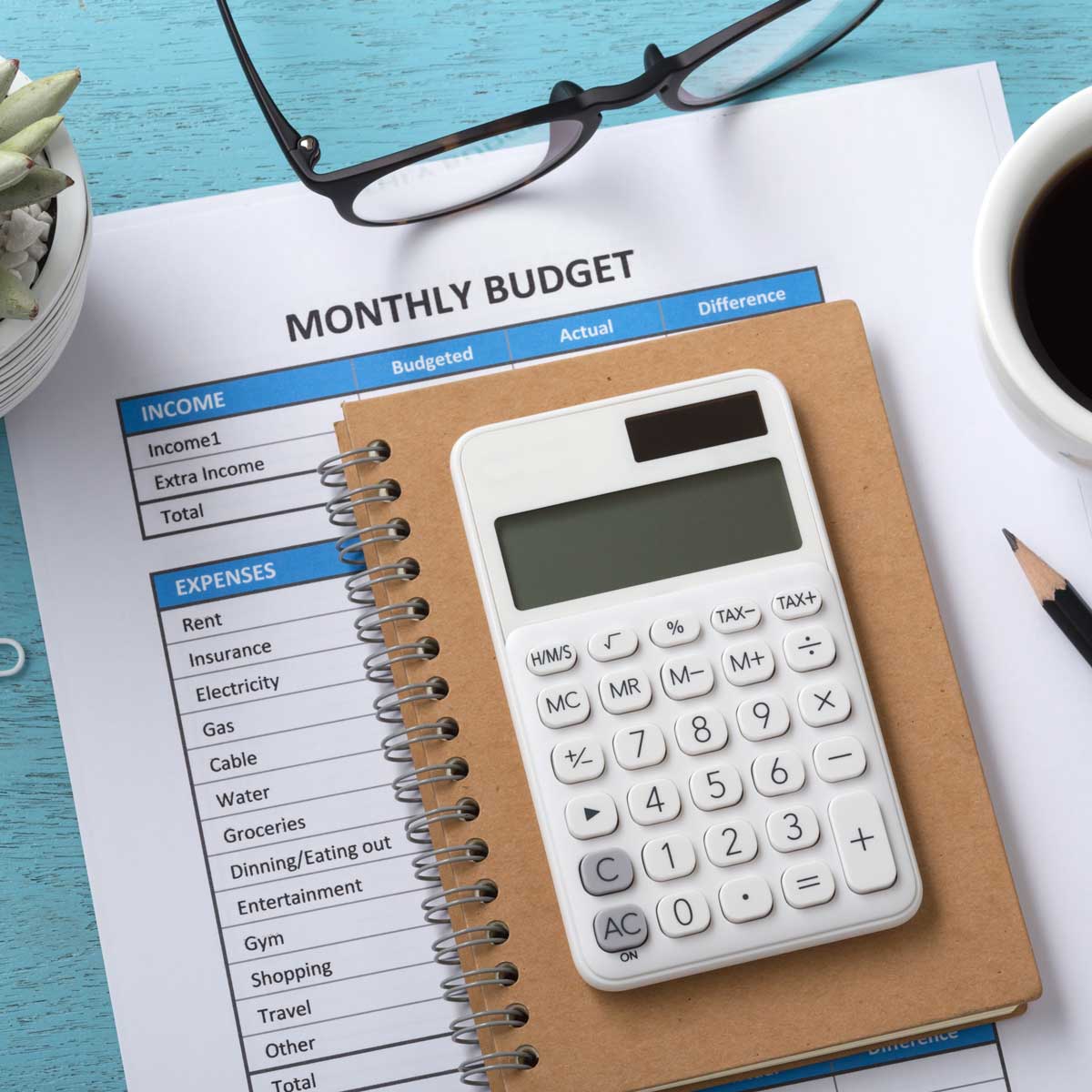This website uses cookies so that we can provide you with the best user experience possible. Cookie information is stored in your browser and performs functions such as recognising you when you return to our website and helping our team to understand which sections of the website you find most interesting and useful.
Summer of Spending

Summer is in full swing. With an increase in activities, our spending rises as well. This supports economic stimulation – which is beneficial – but also runs the risk of placing great financial stress on your pocket. Don’t let the warm weather and freedom put a dent in your financial future. Let’s talk about budgeting to help you build capital now and in the future.
Start to Budget
According to a 2021 study, more than half of the U.S. respondents indicated that they are living “paycheck to paycheck.”
Building a sound budget is an important foundation to financial wellness and freedom. With the ever-increasing ease of online shopping and automated payments, it can be difficult to keep track of where and when you’re spending. This is part of the reason that being intentional and creating a plan for your money is so important. Consider your spending habits: what you must spend money on, what you want to buy, and what you might not need. Doing this will give you an understanding of how much you must set aside for your mortgage, utilities, retirement, groceries, and other essentials. You will also gain insight into how much money you can allocate to dining out, activities, and other extras.
That same 2021 study found that 54% of consumers purchased a product they first heard about on social media. It is likely that purchases made after seeing an ad on social media were not planned and were purchased in the spur of the moment. While there is nothing wrong with that, you can feel confident in a spontaneous purchase when you have a solid budget that leaves room for entertainment or fun buys.
Best Practices for Your Budget
The idea of putting pen to paper and building your budget doesn’t have to be a daunting task. To start, document your current income (after taxes) per month. A common framework for a budget that you can begin with is to determine if a purchase falls into one of three categories: needs, wants, and savings. While each person’s situation is different, it’s most common to allocate 50% of your income to needs, 30% to wants, and 20% to savings.
Needs
The Needs category is comprised of your essentials or absolutes. Spending that falls into this category includes housing, utilities, transportation, groceries/food, insurance, and child care. Some of these expenses may be fixed, some may be variable. Depending on how the total of these items compare to 50% of your income, you may want to see what adjustments, if any, can be made.
Wants
The Wants category is where your discretionary spending comes into play. It can be a challenge to figure out what is considered a need versus a want. We believe in having fun and enjoying the money you have, but not necessarily spending at the expense of your overall financial situation and future.
Savings
Your Savings category is a commitment to your financial wellness and future. It may be the smallest bucket of your monthly budget, but saving and paying off debt is foundational to the big picture. If you don’t have an emergency fund, work toward creating that first. Savings can have smaller sub-buckets as well. For example, planning for a vacation can include putting money aside each month towards a vacation fund.
Tying it All Together
After organizing your best practices, take inventory and look at your spending activity from the past couple of months. Becoming more aware of how and where spending occurs (and where it might not need to) can be enlightening. You might take the next step of reassessing or modifying your spending habits to be more intentional toward reaching your goals. What your financial future can look like is often influenced by what steps you take now.
Tracking Your Spending
Now that you’ve laid the groundwork toward categorizing your spending, you can start tracking your expenses month over month. There are numerous tools – from spreadsheets to apps to using a pen and paper.
The more you concentrate on your budget and making conscious spending decisions, you’ll learn that budgeting gives you the opportunity to have your money work for you, rather than the other way around.
A Better Financial Future
A better financial future can start with one easy step: budgeting. From there, you will find yourself making better financial decisions (or at least trying to) and practicing healthy buying habits. To talk to our financial planning professionals and learn more about maintaining a budget, please contact us.
This publication contains general information only and Sikich is not, by means of this publication, rendering accounting, business, financial, investment, legal, tax, or any other professional advice or services. This publication is not a substitute for such professional advice or services, nor should you use it as a basis for any decision, action or omission that may affect you or your business. Before making any decision, taking any action or omitting an action that may affect you or your business, you should consult a qualified professional advisor. In addition, this publication may contain certain content generated by an artificial intelligence (AI) language model. You acknowledge that Sikich shall not be responsible for any loss sustained by you or any person who relies on this publication.




